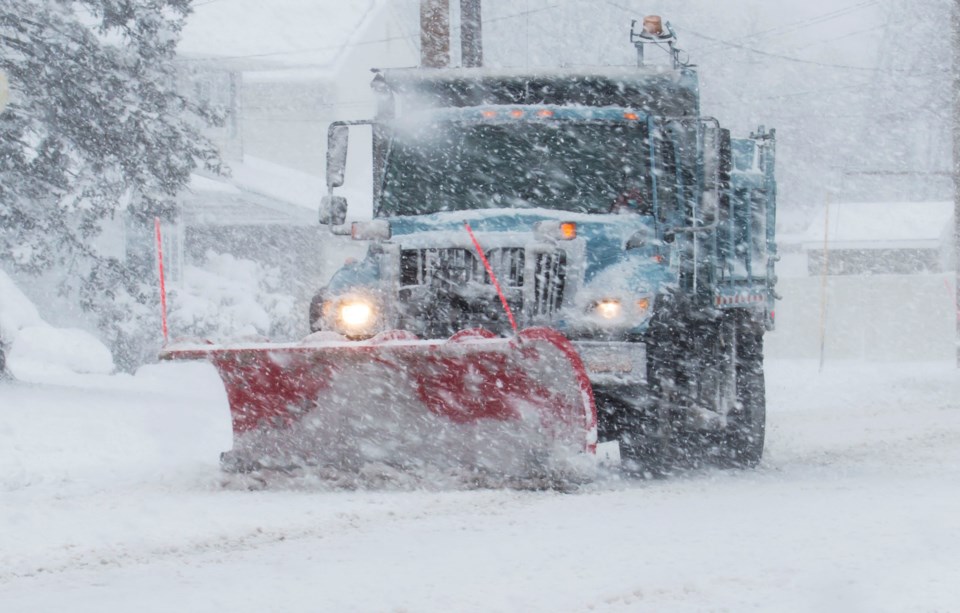From road and sidewalk clearing to the city’s response after major snow events, city council will consider an array of potential improvements to Orillia’s winter maintenance program during 2025 budget deliberations.
At last week’s council meeting, staff presented an overview of the city’s winter maintenance program, including a host of measures that could bolster snow-clearing efforts.
While the city currently meets all legislated policy requirements for winter maintenance, last week’s report arrived after a council request regarding options and costs to improve response times during extreme weather events.
In the report, staff recommended maintaining the status quo for road plowing, while spending $34,000 to increase sidewalk clearing, and updating the city’s winter control policy and salt-management plan.
“There have been four (sidewalk-clearing) routes for many years, which have grown in size due to development in the west end,” said Jason Flemming, supervisor of roads, source and storm. “It is recommended to add one additional sidewalk-clearing route at an annual cost of approximately $34,000 for two seasonal full-time staff.”
An additional $12,000 for cross-training heavy plow and sidewalk operators has also been recommended.
Other options presented for council’s consideration include increasing from eight road-plowing routes to 10, which would enable roads to be cleared faster, at a capital cost of $900,000 for two new plow trucks and $235,000 in annual operating costs.
Snow is generally removed within three days of snowfall events, staff said, and an extra $60,000 would be needed to remove snow more quickly in “problem areas” of the city.
“Some problem areas exist, primarily on the west side of town and some central areas,” said Cheryl Remm, director of facilities, climate change and operations. “To respond faster, four additional staff would be needed with two loader plows, one with a blower, for an annual operating cost of $60,000. Existing truck availability to collect snow may be a challenge.”
Removing snow from windrows — the snow banks at the entrances to driveways — was also presented as an option, but would come at a $2.4-million capital cost for equipment and $500,000 in annual operating costs.
Council agreed to forward the proposed service enhancements to 2025 budget deliberations later this year, with Coun. Jay Fallis successfully introducing an amendment to consider an additional $100,000 for road-plowing support and additional snow removal.
“The logic (is) that contracted services could be brought in after extreme snowfalls,” he said. “If there had been … 12 inches of snow in 12 hours, hypothetically, you’d have a contractor, from my understanding, be able to be brought in to run certain routes.”
At the meeting, council also agreed to implement the city’s salting/sanding strategy as part of normal operations.
Over the past couple of years, the city gradually phased out sand application on roads, parking lots, and sidewalks through a pilot project.
When asked by council, staff explained numerous benefits that arrived through the pilot, including $80,000 in savings from applying only salt.
“We witnessed a reduced snowpack on the city roads through the winter, because salt is more effective on its own than in the sand blend, so we did see more of the bare surface conditions, which is what we’re after,” said Roger Young, general manager of environment and infrastructure services.
Young also said there was a 50 per cent reduction in icy road concerns reported to the city, and that air quality has improved in the city during spring cleanup as a result of eliminating sand application.
“We had many comments that came back after that, that first year that residents were very happy with the improved air quality,” he said, “and then, of course, reduced sand outletting at the ports and the discharges of lakes.”
